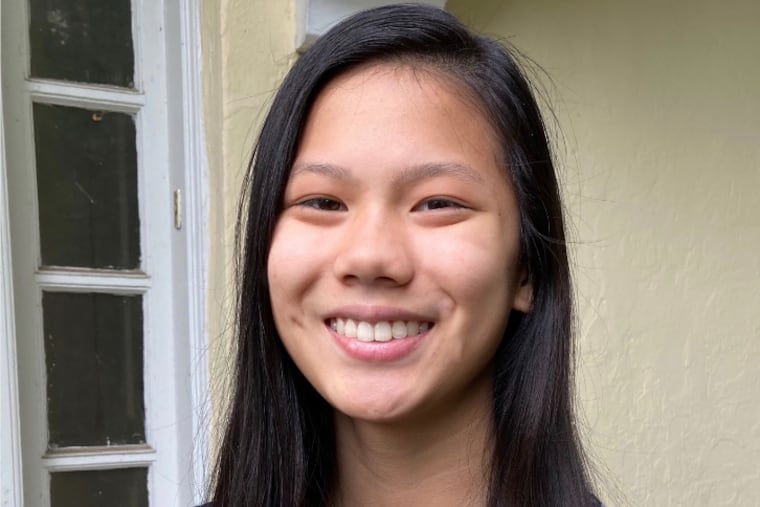My name is Zhao Gu. You can call me Zhao Gu. | Opinion
After the Atlanta shootings and intensified AAPI hate, I realized I could no longer keep my Asian identity in the background.

My first name is Zhao Gu. It’s Chinese and it’s pronounced “Jhow Goo.”
It means “new beginning, beautiful girl,” and it was bestowed on me by the caretakers at an orphanage in WuWei, China, where I spent the first 11 months of my life.
Most of the 100,000 children adopted from China in the last three decades were given new, American names by their new, American parents. My parents kept mine. And as I grew and considered the meaning and importance of my name, I kept it for myself.
At 17, I know a name is highly personal. A name is as defining as a face. A name is what we call the people closest to us a hundred times a day. A name is how you introduce yourself to the world. Mine mainly provoked confusion among my mostly white peers.
» READ MORE: How I went from ‘meh’ to impassioned about celebrating my Asian heritage | Opinion
In first grade, my teachers didn’t even try to pronounce my name correctly, and tested myriad pronunciations: Ciao, Z, Zou. In high school some asked me if they should call me Zhao or Zhao Gu, and I told them whatever they prefer. I let my friends do the same. This was my way of trying to fit in, and compromising my name was a sacrifice I chose to make.
But now I’ve realized that in allowing others to Americanize my name, I was denying my Asian heritage and trading away my origin.
I confided in the girls I call my “China sisters,” the other adoptees from China to whom I had become close, and found that even there I was alone. In coming to America, my China sisters were given names that allowed them to blend in and at least on paper hide their Asian identity. They became Olivias and Emilys, Avas and Sophias.
We never discussed our Chinese names, those kept and those replaced. I often contemplated if my China sisters cared about their Asian names and if they cared about their birth families and cultures.
Growing up, despite being a part of local Chinese communities, I did not think about my Asian identity. When I was 7 years old, my parents immersed my sister and me in communities and events where we were in the racial and cultural majority — and where my name was like other’s. We spent Friday nights in Chinatown for kung fu class and dim sum dinners and getting together with friends. At Lunar New Year, my sister and I lion-danced at parades, parties, and banquets across the region.
But when I reached high school, I became interested in marching band and robotics and Latin. I lost touch with the community where my name was just like everyone else’s. Band practices replaced kung fu lessons and schoolwork became more demanding. These days we still go to Chinatown for dinners and shopping, especially at the new year, but I don’t spend all holiday dancing through the streets to celebrate.
» READ MORE: 6abc anchor Nydia Han: Asian Americans saw this coming | Opinion
After the Atlanta shootings and intensified AAPI hate, I realized I could no longer keep my Asian identity in the background. Seeing people with names like mine shot to death and their names misspelled and mispronounced in news reports spurred me to examine my Asian name. I wonder if my name makes me a target.
Reading those Asian names propelled me to embrace my name in its complexity. I understood that I must stand up for myself, my name, my culture. If I let my Asian name be incorrectly pronounced, then I let others define me, and let my identity fade. Now I insist my name be pronounced correctly, my Asian heritage acknowledged. Now I see my name as a symbol of strength, a symbol of community, a symbol of hope. Hope of a new beginning.
Zhao Gu Gammage is a senior at Cheltenham High School and will be a freshman at Haverford College in the fall.